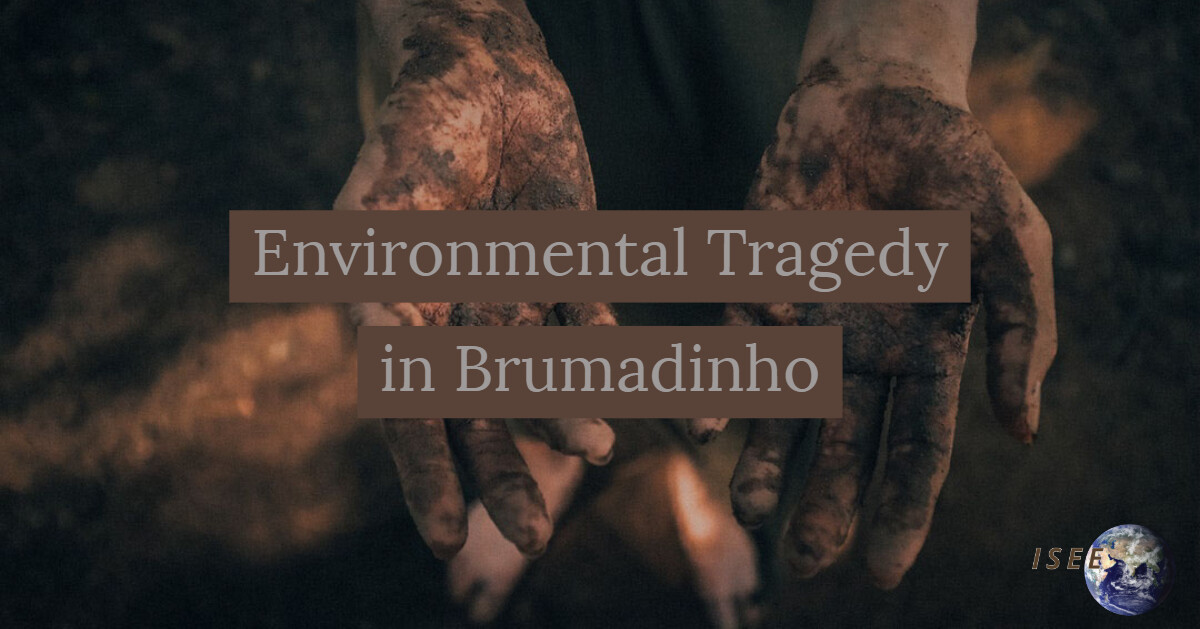
The International Society for Ecological Economics (ISEE) expresses its pain in the face of yet another environmental tragedy in Brazil, this time in Brumadinho, state of Minas Gerais.
This tragedy involves a tailings dam that was improperly built and managed; at this time at least 37 people are dead and hundreds are missing. This event follows three years and two months after a similar dam rupture in Mariana (also Minas Gerais) in which 19 people died and thousands were hit by the damages from the mudslides.
Both enterprises are owned by the large Brazilian company Vale. Public ineptitude in licensing private corporate entities to maintain mine waste deposits without adequate safeguards, exposing their own workers and undefended private citizens to damage and death deserve vehement denunciation and the request of correction of the course in the case of environmental licensing.
The Brumadinho dam that ruptured – merely three years and two months after the grave Mariana incident, that until today sparks controversy regarding unmet indemnification commitments – did not even have a warning siren operational in case of disaster. The rescue operations then are added to national GDP as economic “activity”.
Not only do national accounts fail to account for the pollution and natural capital depletion associated with all mining activities, the rescue operations are actually added to national GDP as economic “activity”.
This is a situation in which ISEE offers its solidarity to the victimized populations and asks that the Brazilian authorities take effective measures to enforce and improve legislation which prevents and adequately penalizes accidents, while applying the precaution principle to existing and proposed projects. Economic growth at any cost leads to much socio-environmental injustice.


2 Responses
Economic growth is a proved fallacy since Nicholas Georgescu Roegen. “Economic growth at any cost leads to much socio-environmental injustice” should be re-written: “Contrary to common wisdom that adopted the oxymoron “Sustainable Growth or Development”, economic growth always will lead to socio-environmental injustice. Economic growth is the root of our malaise and it is taking us to full life extinction. Economic growth only evolves at any cost. Economic growth only feeds more economic growth, while destroy jobs, Nature and well-being. Economic growth assumes no environmental or social costs related to the economic processes. Brumadinho is not “the” problem, but one consequence among several and examples like this will continue, unless we drop the fallacy of economic growth.
While not exhaustive, a considerable number of members of the ISEE are engaged in research on these matters. The lack of flexibility of existing institutions in most countries and the capture of many international organizations by entrenched interests (selling uncritical notions of ecological modernization, “sustainable development”, the “circular economy”) are generating complex obstacles for people searching for solutions to clearly identified problems; social and political conflict is intensifying around the world. At the same time, we are discovering that people around the world are adopting alternative ways to organize themselves, forging new models of “good living”, oftentimes choosing to live at the margins of their societies rather than open themselves to outside environmental and economic exploitation, and to internal and external colonialism. Ecological economists are discovering that these people have much to teach us about possible alternative paths to addressing the challenges. In the terminology of Karl Polanyi, they refuse to be incorporated into the “generalized market system”. Mexico is one of the countries of the world where such social experiments are influential and widespread.